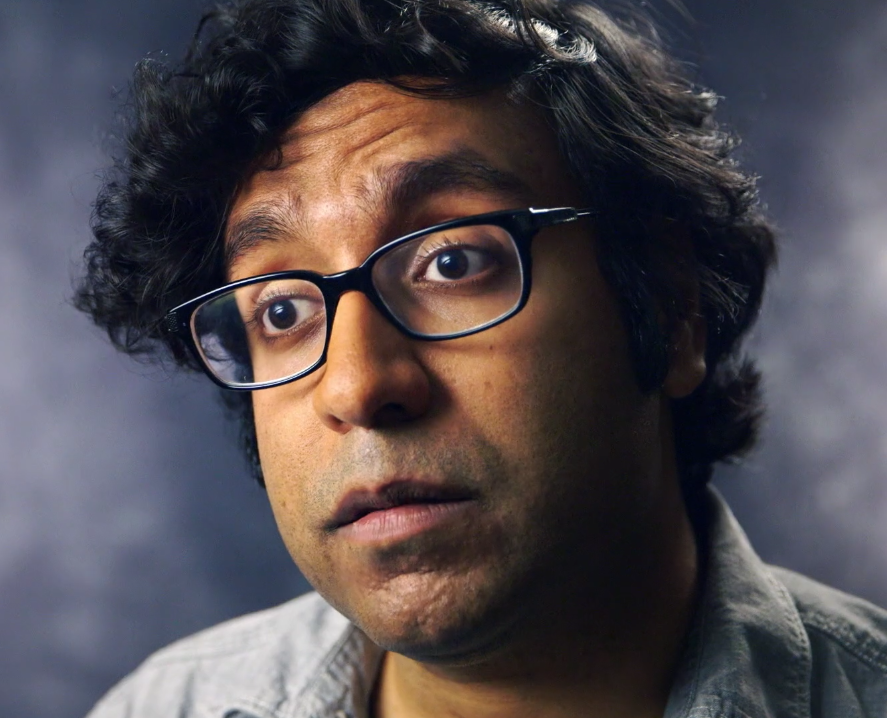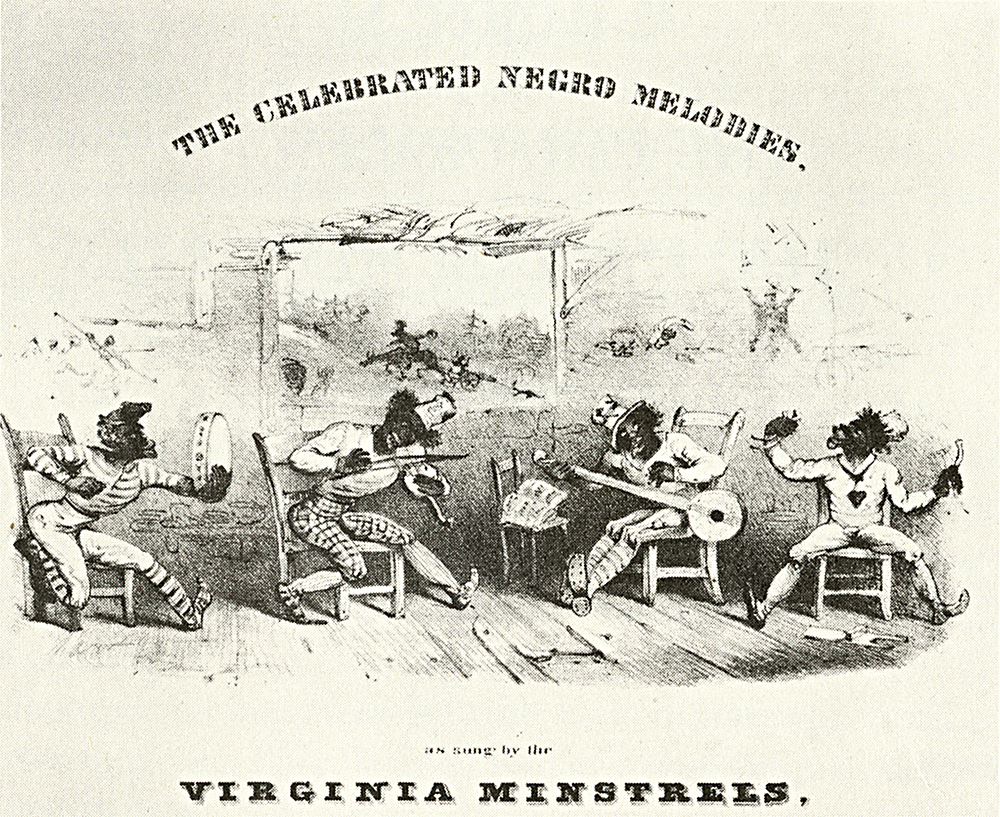|
The Problem With Apu
''The Problem with Apu'' is a 2017 documentary film written by and starring comedian Hari Kondabolu and produced and directed by Michael Melamedoff. It focuses on the character Apu Nahasapeemapetilon, an Indian immigrant in the animated sitcom ''The Simpsons'' who, for a period, was the only figure of Indian heritage to appear regularly on mainstream U.S. television. The film explores encounters with negative stereotypes, minstrelsy, racial microaggressions, and slurs against people of Indian and South Asian heritage. Background Kondabolu grew up watching ''The Simpsons'' and cites it as a major influence on his comedy and cultural savvy. Initially, he liked the character Apu because the character was the only representation of his family's culture regularly aired on television in the United States. Kondabolu told the BBC, "Apu was the only Indian we had on TV at all so I was happy for any representation as a kid." As he grew older, Kondabolu became more critical of Apu, say ... [...More Info...] [...Related Items...] OR: [Wikipedia] [Google] [Baidu] |
Hari Kondabolu
Hari Karthikeya Kondabolu (born October 21, 1982)Beem, p. 38 is an American stand-up comic. His comedy covers subjects such as race, inequity, and Indian stereotypes. He was a writer for ''Totally Biased with W. Kamau Bell'' and the creator of the 2017 documentary film ''The Problem with Apu''. Early life and family Kondabolu was born October 21, 1982 in the Flushing neighborhood of the New York City borough of Queens, to Uma and Ravi Kondabolu, who had immigrated from the city of Tenali in the Coastal Andhra region of South India. His mother was previously a physician in India, and both parents became the heads of New York area medical labs. Ravi Kondabolu had immigrated to the United States in 1978. Kondabolu attended public schools in Queens: PS 69 in Jackson Heights, PS 115 in Floral Park, MS 172 in Floral Park, and Townsend Harris High School in Flushing, where he graduated in 2000. Kondabolu is the older brother of Ashok Kondabolu, who is a former member of the group Das ... [...More Info...] [...Related Items...] OR: [Wikipedia] [Google] [Baidu] |
TruTV
TruTV (stylized as truTV) is an American basic cable channel owned by Warner Bros. Discovery. The channel primarily broadcasts comedy, docusoaps and reality shows. The channel was originally launched in 1991 as Court TV, a network that focused on crime-themed programs such as true crime documentary series, legal dramas, and coverage of prominent criminal cases. The channel was initially a joint venture between Time Warner, American Lawyer Media, Cablevision, and NBC, with Liberty Media later joining the venture as well. By 2005, Liberty Media and Time Warner had purchased ALM, Cablevision and NBC's stakes in Court TV. Time Warner subsequently bought out Liberty's share in 2006 for $735 million, and brought the channel under its Turner Broadcasting subsidiary. In 2008, the channel relaunched as TruTV, changing its focus to action-oriented docusoaps and "caught on camera" programs, which it marketed as "actuality" television. The channel continued to carry legal coverage dur ... [...More Info...] [...Related Items...] OR: [Wikipedia] [Google] [Baidu] |
Stand Up Comedy
Stand-up comedy is a comedic performance to a live audience in which the performer addresses the audience directly from the stage. The performer is known as a comedian, a comic or a stand-up. Stand-up comedy consists of one-liners, stories, observations or a shtick that may incorporate props, music, magic tricks or ventriloquism. It can be performed almost anywhere, including comedy clubs, comedy festivals, bars, nightclubs, colleges or theatres. History Stand-up as a Western art form has its roots in the stump speech of American minstrel shows, which featured an actor in blackface delivering nonsensical monologue to the audience. While the intention of stump speeches was to mock African-Americans, they also occasionally contained political and social satire. The minstrel show would later influence theatrical traditions of the late 19th and early 20th centuries, such as vaudeville and burlesque. The first documented use of "stand-up" as a term was in ''The Stage'' in 19 ... [...More Info...] [...Related Items...] OR: [Wikipedia] [Google] [Baidu] |
Racial Stereotype
An ethnic stereotype, racial stereotype or cultural stereotype involves part of a system of beliefs about typical characteristics of members of a given ethnic group, their social status , status, societal and cultural norms. A national stereotype, or national character, does the same for a given nationality. The stereotyping may be used for humor Ethnic joke, in jokes, and/or may be associated with racism. National stereotypes may relate either to one's own ethnicity/nationality or to a foreign/differing one. Stereotypes about one's own nation may aid in maintaining a national identity due to a collective relatability to a trait or characteristic. Examples According to an article by ''The Guardian'' titled "European Stereotypes: What Do We Think of Each Other and Are We Right?", the Europe stereotype towards Britain is as "Alcohol intoxication, drunken, semi-clad hooligans or else snobbish, stiff free marketers", their view towards France is "cowardly, arrogant, chauvinist ... [...More Info...] [...Related Items...] OR: [Wikipedia] [Google] [Baidu] |
Totally Biased With W
{{Disambiguation ...
Totally may refer to: * ''Totally'' (album), album by German band Bad Boys Blue *Totally (company), publishing company See also * *Total (other) Total may refer to: Mathematics * Total, the summation of a set of numbers * Total order, a partial order without incomparable pairs * Total relation, which may also mean ** connected relation (a binary relation in which any two elements are compa ... [...More Info...] [...Related Items...] OR: [Wikipedia] [Google] [Baidu] |
FX (TV Channel)
FX is an American pay television channel owned by FX Networks, LLC, a subsidiary of the Disney General Entertainment Content unit of The Walt Disney Company. It is based at the Fox Studios lot in Century City, California. FX originally launched on June 1, 1994. The network's original programming aspires to the standards of premium cable channels in regard to mature themes and content, high-quality writing, directing and acting. Sister channels FXM and FXX were launched in 1994 and 2013, respectively. FX also carries reruns of theatrical films and terrestrial-network sitcoms. Advertising-free content was available through the FX+ premium subscription service until it was shut down on August 21, 2019. As of September 2018, FX is available to approximately 89.2 million television households (96.7% of households with cable) in the United States. In addition to the flagship U.S. network, the "FX" name is licensed to a number of related pay television channels in various countries ... [...More Info...] [...Related Items...] OR: [Wikipedia] [Google] [Baidu] |
Rolling Stone
''Rolling Stone'' is an American monthly magazine that focuses on music, politics, and popular culture. It was founded in San Francisco, San Francisco, California, in 1967 by Jann Wenner, and the music critic Ralph J. Gleason. It was first known for its coverage of rock music and political reporting by Hunter S. Thompson. In the 1990s, the magazine broadened and shifted its focus to a younger readership interested in youth-oriented television shows, film actors, and popular music. It has since returned to its traditional mix of content, including music, entertainment, and politics. The first magazine was released in 1967 and featured John Lennon on the cover and was published every two weeks. It is known for provocative photography and its cover photos, featuring musicians, politicians, athletes, and actors. In addition to its print version in the United States, it publishes content through Rollingstone.com and numerous international editions. Penske Media Corporation is the c ... [...More Info...] [...Related Items...] OR: [Wikipedia] [Google] [Baidu] |
Racism
Racism is the belief that groups of humans possess different behavioral traits corresponding to inherited attributes and can be divided based on the superiority of one race over another. It may also mean prejudice, discrimination, or antagonism directed against other people because they are of a different race or ethnicity. Modern variants of racism are often based in social perceptions of biological differences between peoples. These views can take the form of social actions, practices or beliefs, or political systems in which different races are ranked as inherently superior or inferior to each other, based on presumed shared inheritable traits, abilities, or qualities. There have been attempts to legitimize racist beliefs through scientific means, such as scientific racism, which have been overwhelmingly shown to be unfounded. In terms of political systems (e.g. apartheid) that support the expression of prejudice or aversion in discriminatory practices or laws, racist ideology ... [...More Info...] [...Related Items...] OR: [Wikipedia] [Google] [Baidu] |
Racial Microaggression
Microaggression is a term used for commonplace daily verbal, behavioral or environmental slights, whether intentional or unintentional, that communicate hostile, derogatory, or negative attitudes toward stigmatized or culturally marginalized groups. The term was coined by Harvard University psychiatrist Chester Middlebrook Pierce, Chester M. Pierce in 1970 to describe insults and dismissals which he regularly witnessed non-black Americans inflicting on African Americans. By the early 21st century, use of the term was applied to the casual degradation of any social exclusion, socially marginalized group, including LGBT people, people living in poverty, and people who are disability, disabled. Psychologist Derald Wing Sue defines microaggressions as "brief, everyday exchanges that send denigrating messages to certain individuals because of their group membership". The persons making the comments may be otherwise well-intentioned and unaware of the potential impact of their words. A n ... [...More Info...] [...Related Items...] OR: [Wikipedia] [Google] [Baidu] |
Minstrel Show
The minstrel show, also called minstrelsy, was an American form of racist theatrical entertainment developed in the early 19th century. Each show consisted of comic skits, variety acts, dancing, and music performances that depicted people specifically of African descent. The shows were performed by mostly white people wearing blackface make-up for the purpose of playing the role of black people. There were also some African-American performers and black-only minstrel groups that formed and toured. Minstrel shows caricatured black people as dim-witted, lazy, buffoonish, superstitious, and happy-go-lucky.The Coon Character , Jim Crow Museum of Racist Memorabilia, Ferris State University. Retrieved 29 January 2016.John Kenrick [...More Info...] [...Related Items...] OR: [Wikipedia] [Google] [Baidu] |
Stereotype
In social psychology, a stereotype is a generalized belief about a particular category of people. It is an expectation that people might have about every person of a particular group. The type of expectation can vary; it can be, for example, an expectation about the group's personality, preferences, appearance or ability. Stereotypes are sometimes overgeneralized, inaccurate, and resistant to new information, but can sometimes be accurate. While such generalizations about groups of people may be useful when making quick decisions, they may be erroneous when applied to particular individuals and are among the reasons for prejudicial attitudes. Explicit stereotypes An explicit stereotype refers to stereotypes that one is aware that one holds, and is aware that one is using to judge people. If person ''A ''is making judgments about a ''particular'' person ''B'' from a group ''G'', and person ''A'' has an explicit stereotype for group ''G'', their decision bias can be partiall ... [...More Info...] [...Related Items...] OR: [Wikipedia] [Google] [Baidu] |

.jpg)





